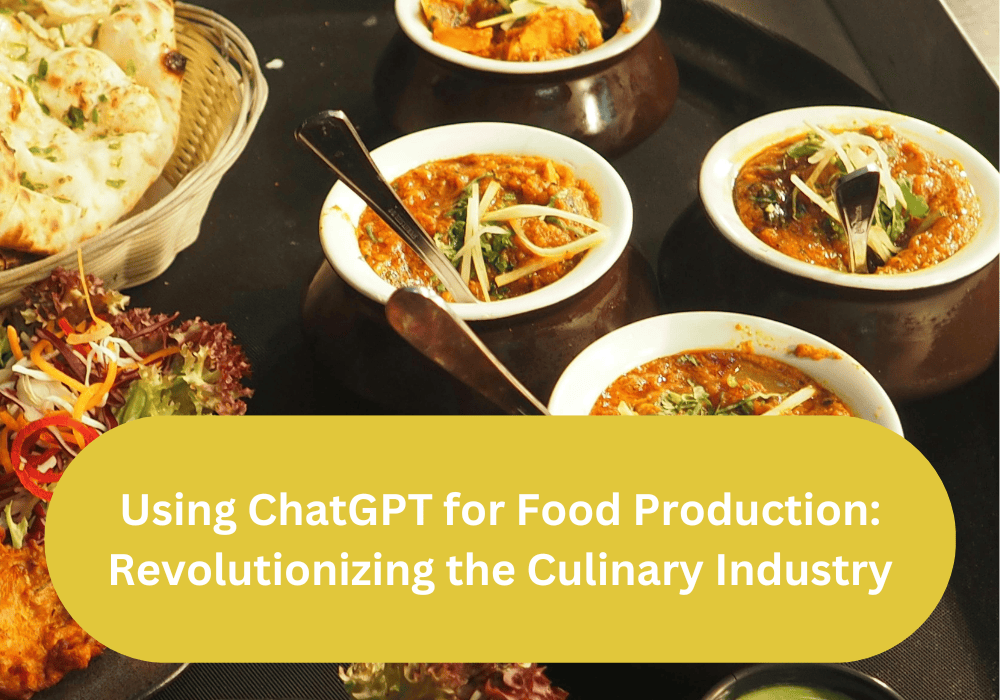In the contemporary culinary landscape, the integration of advanced technologies like artificial intelligence (AI) has been a game-changer. ChatGPT, developed by OpenAI, stands out as one of the most innovative tools in this revolution. This AI-driven language model has found applications in various sectors, and the food industry is no exception. From recipe development to supply chain management, ChatGPT is reshaping how we approach food production.
Recipe Development and Customization
One of the primary uses of ChatGPT in food production is in recipe development and customization. Chefs and food enthusiasts can leverage this tool to create unique recipes by inputting specific ingredients, dietary restrictions, or desired cuisines. ChatGPT, with its vast database and learning capabilities, can suggest recipes that cater to these requirements. This not only streamlines the recipe creation process but also fosters culinary innovation by combining ingredients and techniques in novel ways.
Enhancing Culinary Training and Education
Culinary education has been significantly enhanced with the advent of AI tools like ChatGPT. Culinary schools and training programs are utilizing ChatGPT to offer more interactive and personalized learning experiences. The tool can provide instant feedback on recipe ideas, offer suggestions for improvement, and even help students understand complex cooking techniques. This interactive learning approach helps aspiring chefs and food enthusiasts to refine their skills and knowledge more efficiently.
Streamlining Supply Chain Management
In the realm of food production, efficient supply chain management is crucial. ChatGPT can analyze vast amounts of data related to supply chain logistics, including inventory levels, demand forecasts, and delivery schedules. By processing this information, it can provide valuable insights that help businesses optimize their supply chain, reduce waste, and ensure timely delivery of fresh ingredients.
Personalized Nutrition and Diet Planning
With an increasing focus on health and wellness, personalized nutrition has become a significant trend. ChatGPT can assist dietitians and nutritionists in creating customized diet plans based on an individual’s health goals, dietary preferences, and restrictions. By analyzing nutritional data and health information, ChatGPT can suggest meal plans that are both healthy and appealing to the individual’s taste.
Food Safety and Quality Control
Food safety is a paramount concern in the food production industry. ChatGPT can be programmed to monitor and analyze data related to food safety standards and regulations. This includes tracking temperature controls in storage and transportation, monitoring expiration dates, and ensuring compliance with food safety guidelines. Through timely alerts and recommendations, ChatGPT can help prevent foodborne illnesses and maintain high standards of food quality.
Customer Service and Engagement
In the food industry, customer engagement is key to business success. ChatGPT can be utilized to enhance customer service by providing instant responses to queries about menu items, ingredients, and nutritional information. It can also be used for handling reservations and orders, thereby improving the overall customer experience.
Future Prospects and Challenges
As the technology continues to evolve, the potential applications of ChatGPT in food production are boundless. From AI-driven cooking robots to predictive analytics for crop yields, the possibilities are exciting. However, there are challenges, including ensuring data privacy, maintaining the human touch in culinary arts, and addressing the digital divide that may limit access to such technologies.
Conclusion
The integration of ChatGPT into the food production industry signifies a major leap forward in how we approach food preparation, safety, and consumption. By harnessing the power of AI, we can expect more personalized, efficient, and sustainable food production processes. As we continue to explore the capabilities of ChatGPT and similar technologies, the future of the culinary world looks both exciting and promising.

